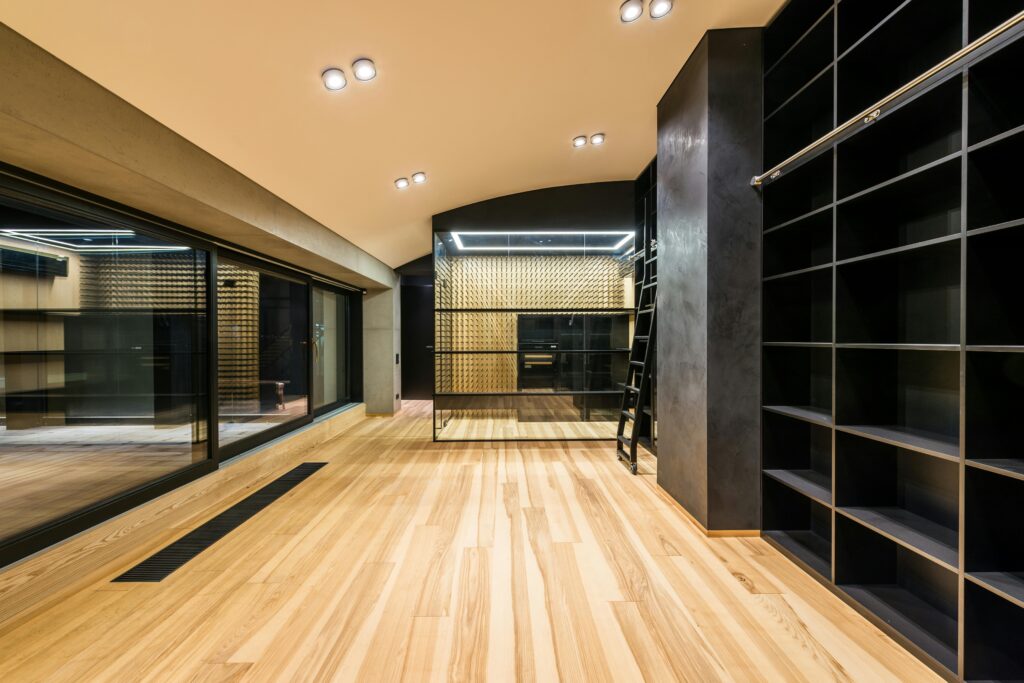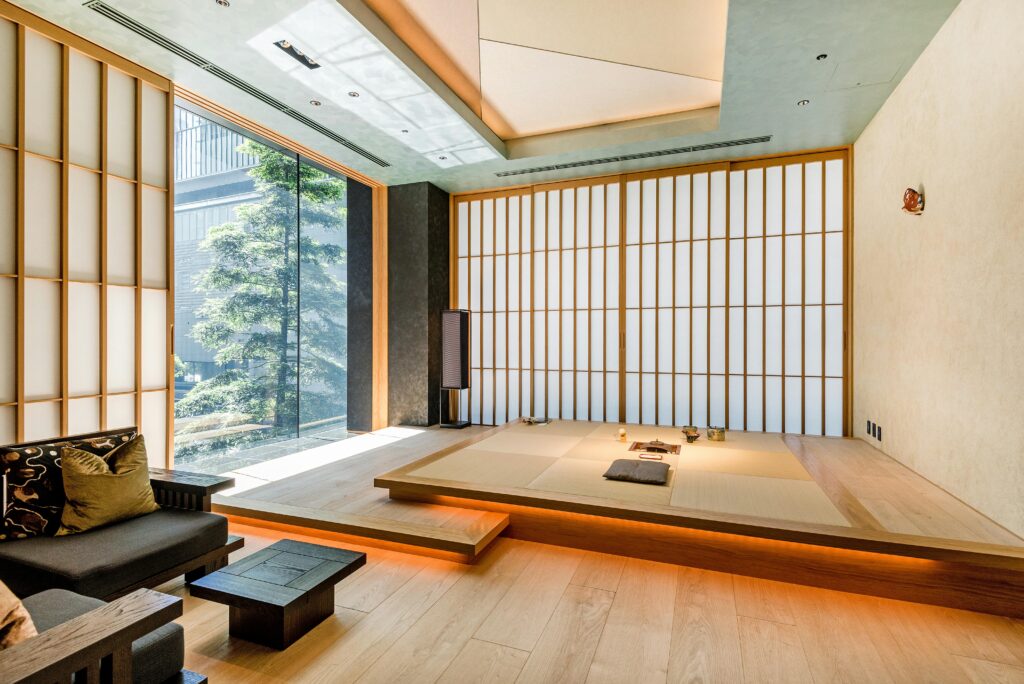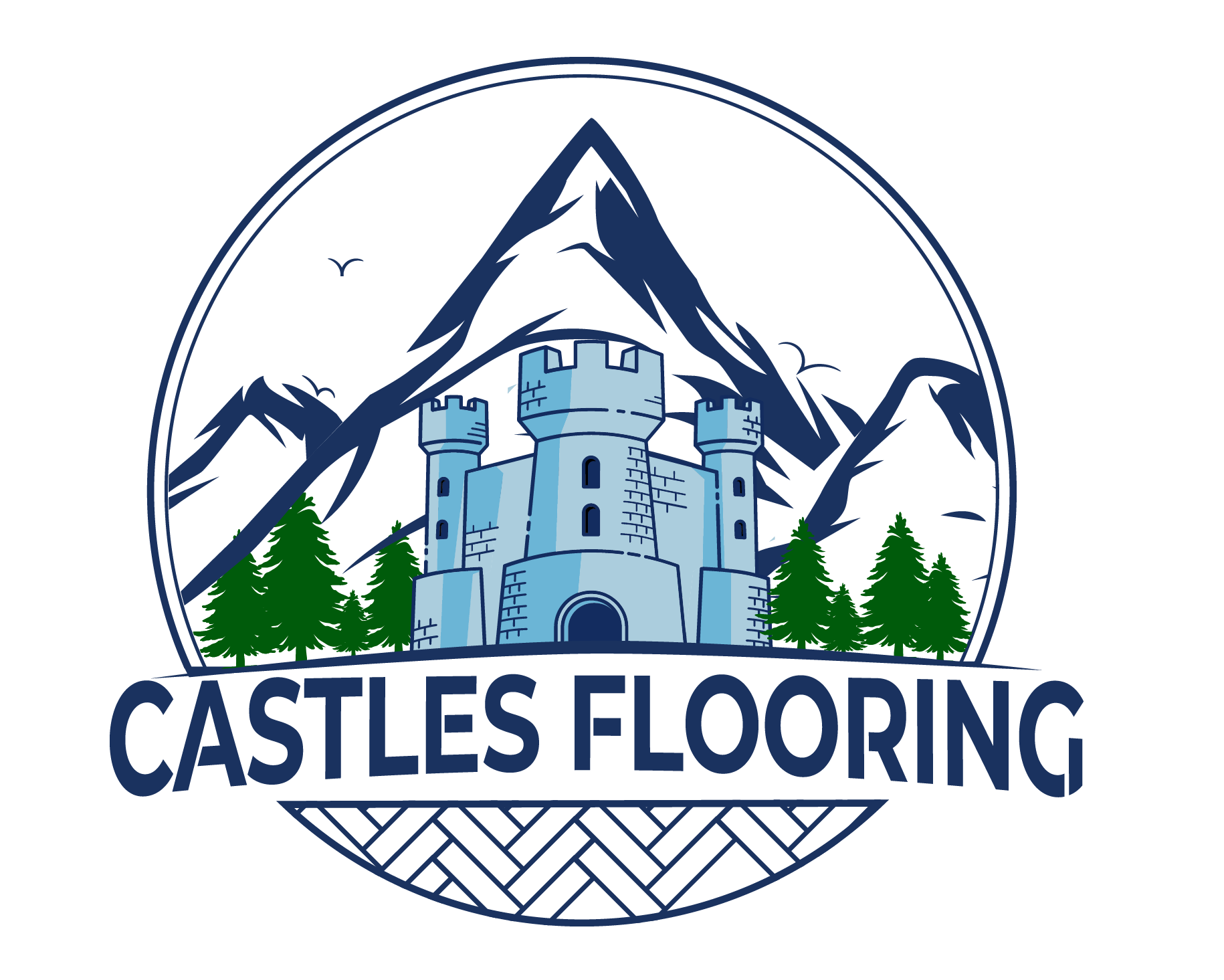Table of Contents
When upgrading your floors, few materials match the beauty and warmth of real wood. But as you explore your choices, you’ll likely find yourself comparing Engineered Wood Vs Hardwood Flooring. While both offer natural appeal and long-lasting value, they differ significantly in construction, cost, installation, and performance.
In this guide, we’ll help you break down the key differences so you can choose the Best Wood Flooring Options for your home.
What Is Solid Hardwood Flooring?
Solid hardwood flooring is exactly what it sounds like—planks made from a single piece of natural wood, such as oak, maple, hickory, or walnut. These boards are typically ¾ inch thick and can be sanded and refinished multiple times throughout their life.
Key Features:
- Authentic, all-natural wood construction
- Long-lasting (can exceed 50 years)
- Can be sanded and refinished 3–5+ times
- Adds strong resale value
Hardwood flooring offers a classic, timeless aesthetic that suits both traditional and modern interiors. If properly maintained, it’s a flooring investment that can last generations.
What Is Engineered Wood Flooring?
Engineered wood flooring is made from a real wood veneer on top of multiple layers of plywood or high-density fiberboard (HDF). This layered construction gives it added stability and resistance to moisture and temperature changes.
Key Features:
- Real wood surface with layered backing
- More dimensionally stable than hardwood
- Easier installation (can be floated or glued)
- Can be refinished 1–2 times (depending on veneer thickness)
If you’re looking for Hardwood Alternatives that offer similar aesthetics with added flexibility, engineered wood may be the perfect fit.

Appearance: Real Wood Look in Both Options
Both hardwood and engineered wood deliver the authentic beauty of natural wood. Since the top layer of engineered wood is real wood, it looks nearly identical to solid hardwood when installed.
- Hardwood offers deeper grain variation and uniqueness in each board.
- Engineered wood comes in a wide range of prefinished styles and stain colors, often mimicking high-end hardwood species at a lower price.
At Castles Flooring, we offer both solid and engineered wood in trending colors and finishes to match any design style.
Durability and Longevity
When comparing Engineered Wood Vs Hardwood Flooring, durability is a major consideration:
- Solid hardwood is extremely durable and long-lasting. Its ability to be refinished multiple times gives it an edge in lifespan.
- Engineered wood is slightly less durable but far more stable in humid or fluctuating environments like basements or coastal homes.
If you’re expecting decades of use and potential remodeling down the line, hardwood offers better longevity. But if you’re looking for a floor that handles environmental changes without warping or buckling, engineered wood is the smarter pick.
Installation and Subfloor Compatibility
Solid hardwood typically requires professional nail-down installation and a wood subfloor. It’s not recommended for below-grade areas or over concrete.
Engineered wood is much more versatile:
- Can be installed as a floating floor, glued, or nailed
- Works well over concrete slabs and radiant heating systems
- Easier and quicker installation process
If you’re working with an older subfloor or uneven surface, engineered flooring may be the better choice. For precision installation, trust the team at Castles Flooring.
Cost Comparison
Engineered wood is generally more affordable than solid hardwood, especially in premium species.
- Hardwood flooring: $8–$15 per square foot (plus finishing and installation)
- Engineered wood flooring: $5–$10 per square foot (prefinished)
Labor costs can also vary. Engineered wood’s easier installation method can reduce your overall budget, especially for larger areas.
Moisture and Climate Resistance
One of engineered wood’s biggest advantages is its resistance to moisture and temperature fluctuations. Its layered construction prevents expansion and contraction, making it ideal for:
- Kitchens and bathrooms (with proper care)
- Basements and below-grade spaces
- Homes with varying humidity levels
Solid hardwood, while durable, expands and contracts with humidity. For humid climates or moisture-prone areas, engineered wood is one of the most reliable Hardwood Alternatives.
Maintenance and Refinishing
Both flooring types require routine sweeping and occasional mopping with wood-safe products.
- Hardwood can be refinished several times to remove scratches or change its color.
- Engineered wood can also be refinished, but the number of times depends on the thickness of the top veneer—usually only once or twice.
If long-term flexibility is a priority, solid hardwood may be a better investment. But engineered wood still allows some refinishing, especially in higher-quality products.
Environmental Considerations
Engineered flooring often makes better use of harvested wood by using only a thin veneer of hardwood. Many options use FSC-certified wood and low-VOC adhesives.
Hardwood, while natural, requires more raw wood per plank. However, both can be eco-friendly depending on sourcing and manufacturing.
At Castles Flooring, we can help you find sustainable options that align with your environmental values.

Long-Term Resale Value
Solid hardwood tends to add greater resale value to a home, especially if it’s well maintained and refinished before selling. However, engineered wood is increasingly accepted by buyers due to its stability, ease of maintenance, and authentic look.
If you’re flipping a house or planning to move within a few years, engineered wood offers great style at a lower price. For forever homes, hardwood may be worth the added investment.
Which One Is Right for You?
| Feature | Solid Hardwood | Engineered Wood |
|---|---|---|
| Authenticity | High | High |
| Refinishing Potential | 3–5+ times | 1–2 times |
| Moisture Resistance | Low | High |
| Installation Versatility | Limited | Flexible |
| Durability | Excellent | Very Good |
Final Thoughts
Choosing between Engineered Wood Vs Hardwood Flooring comes down to your space, budget, and lifestyle needs. Both offer timeless appeal, warmth, and quality—but each shines in different situations.
Explore our full Flooring Installation Services or Contact Us Today to schedule a complimentary consultation.
Let us help you transform your home with flooring that fits your style, budget, and lifestyle.




